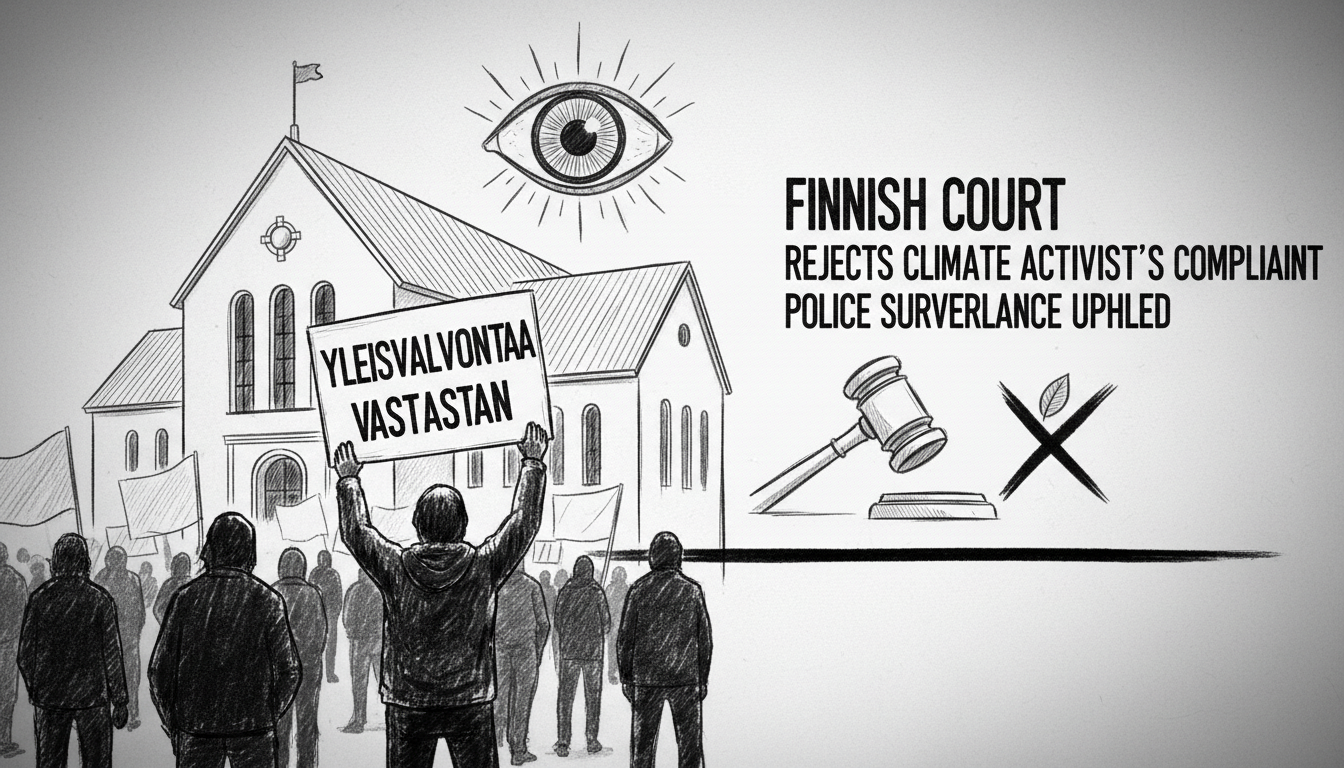A Finnish appeals court has dismissed a climate activist's complaint about police surveillance during protests against the World Rally Championship in Central Finland. The Turku Court of Appeal ruled that police were justified in using telecommunications surveillance on an Elokapina activist during last year's rally events in Jyväskylä.
The activist had argued that authorities lacked proper grounds for the surveillance operation. They claimed police failed to demonstrate sufficient evidence of their involvement in serious property damage. The complaint also noted that surveillance requests primarily targeted the activist's participation in environmental demonstrations rather than specific criminal activity.
Police defended their actions by stating they had reasonable suspicion that the activist planned to damage valuable rally cars. Authorities cited the organized nature of previous protests and specific intelligence about potential property destruction. They estimated prevented damage could have reached substantial financial amounts.
Finnish law permits telecommunications surveillance only when targeting individuals reasonably suspected of crimes carrying minimum four-year prison sentences. The court considered the activist's previous participation in anti-rally demonstrations as relevant context. Elokapina had previously organized street occupations and painted protest messages on grass surfaces during rally events.
The court determined that overall circumstances created reasonable suspicion of potential serious property damage. Surveillance occurred during a limited five-day period under a lower court's authorization. Judges found the monitoring did not violate restrictions governing secret intelligence gathering methods.
This case highlights ongoing tensions between environmental activism and public event security across Nordic countries. Finland maintains relatively broad police surveillance powers compared to some neighboring nations. The ruling establishes precedent for how courts balance protest rights against property protection concerns.
Elokapina represents the Finnish branch of Extinction Rebellion, known for disruptive climate protests. The movement has repeatedly targeted motorsports events across Scandinavia, arguing they promote environmentally harmful activities. Previous demonstrations have included road blockades and attempts to disrupt race operations.
The Jyväskylä rally represents one of Finland's major international sporting events, attracting thousands of visitors annually. Local businesses depend heavily on tourism revenue during the competition period. Security concerns have intensified following increased activist targeting of high-profile events throughout the Nordic region.
Legal experts note this ruling may influence how other Nordic courts handle similar cases involving protest surveillance. Sweden and Norway have faced comparable challenges balancing environmental activism against event security requirements. The decision reinforces police authority to monitor individuals based on demonstrated patterns of protest activity.
International observers should note that Nordic countries generally permit broader surveillance powers than many other European nations. Finland's security laws have evolved significantly following increased cross-border security concerns in recent years. The ruling demonstrates continued judicial support for proactive policing measures during major public events.
What comes next for climate protest surveillance in Finland? This case likely sets the stage for continued legal battles over police monitoring powers. Activist groups may challenge the interpretation of reasonable suspicion in future cases. The balance between protest rights and event security remains an evolving legal question across the Nordic region.

